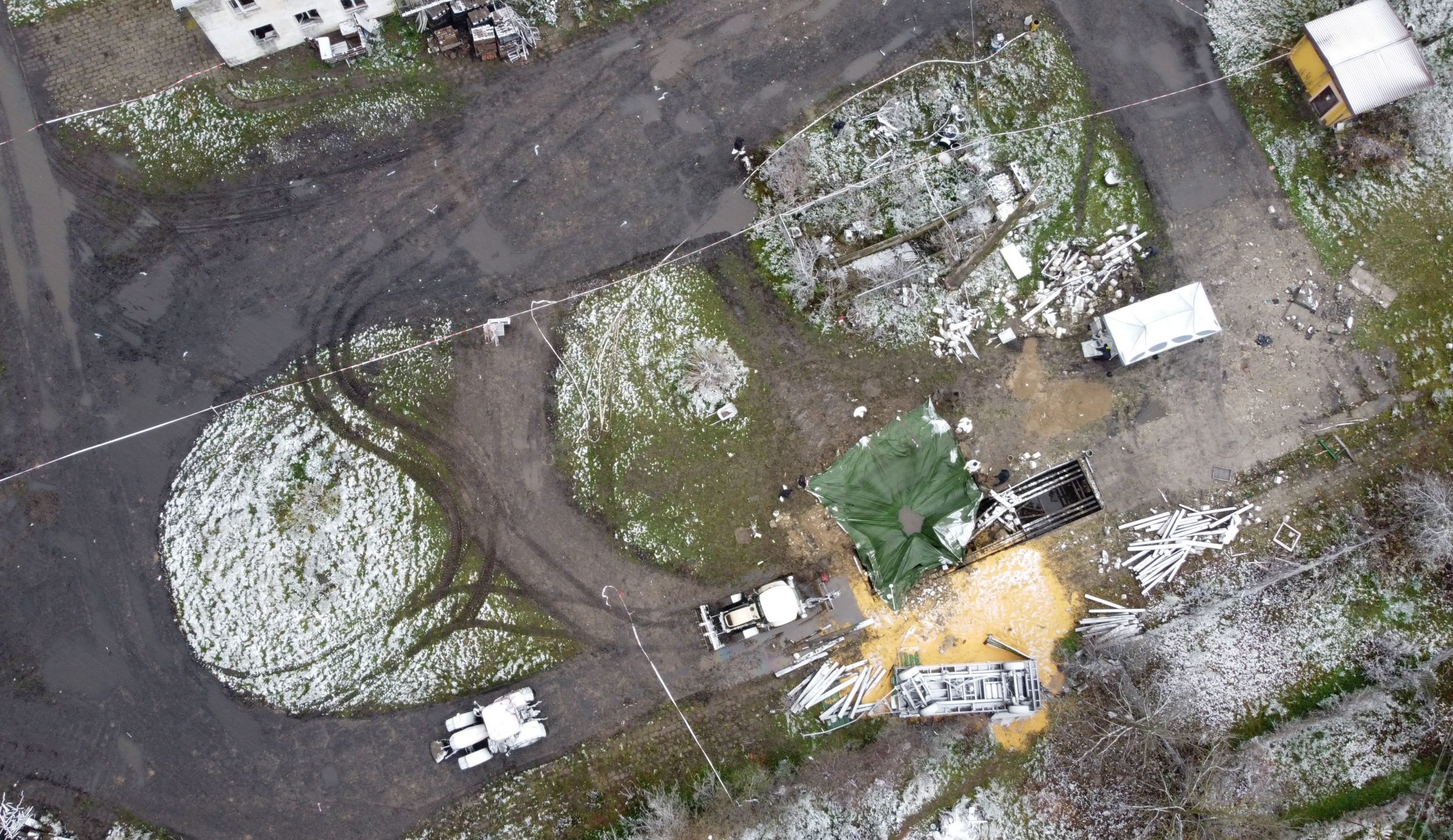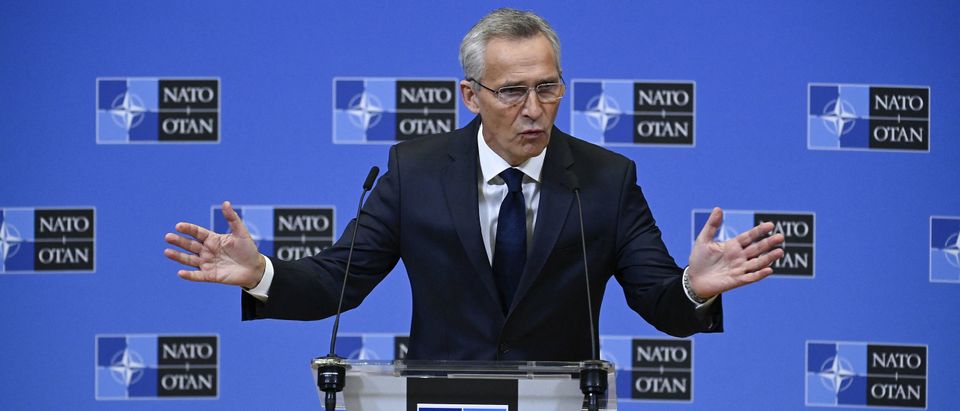- A Russian-made missile struck NATO territory last week and sparked concerns of war breaking out between Russia and the NATO alliance, but NATO’s response prevented further escalation, experts told the Daily Caller News Foundation.
- Instead, NATO discussed the attack on the tail end of a scheduled meeting and bolstered air defenses on the Polish border with Ukraine.
- “The fact that Poland was not hasty and was very careful is more evidence that NATO is not determined to go to war with Russia,” Rebeccah Heinrichs, a senior fellow at the Hudson Institute specializing in national defense policy, told the Daily Caller News Foundation.
A Russian-made missile struck Polish territory late on Nov. 15, sparking fears of a full-scale military retaliation, but NATO avoided potential geopolitical catastrophe by executing a measured response, experts told the Daily Caller News Foundation.
False reports that the missile’s flight trajectory originated in Russia triggered widespread conjecture Poland would call for invocation of NATO’s Article 5, a provision calling for members to come to the defense of any member who suffers a hostile attack. However, NATO’s response to the initial incident and later decisions to bolster air defenses against future incidents were proportional to the threat, experts told the Daily Caller News Foundation.
“The fact that Poland was not hasty and was very careful is more evidence that NATO is not determined to go to war with Russia,” Rebeccah Heinrichs, a senior fellow at the Hudson Institute specializing in national defense policy, told the Daily Caller News Foundation. (RELATED: Is NATO Closer To War With Russia After Nord Stream Sabotage?)
The strike on Polish territory came as Russia launched a barrage of more than 100 missiles against Ukraine, some striking as far west as Lviv, Reuters reported.
Hours after the strike, a breaking news alert from the Associated Press appeared to report that a Russian missile crashed into NATO territory, citing a senior U.S. intelligence official.
Ukrainian President Volodymyr Zelenskyy also alleged the missile had originated in Russia, urging the alliance to take action.
“Believe me, I don’t want to have war with Russia and I’m extra careful, extra careful,” Duda said shortly after the blast.
President Joe Biden, Duda and NATO Secretary Jens Stoltenberg disputed the report the next day, assuring audiences that circumstances suggested a Soviet-made anti-aircraft rocket Ukrainians launched against incoming Russian fire may have veered off course and crashed into Poland.
“We have no indication that this was the result of a deliberate attack and we have no indication that Russia is preparing offensive military actions against NATO,” Stoltenberg said.
A deliberate Russian strike on NATO territory could lead members to activate Article 5 and retaliate against Russia.
“The first report from the front is usually wrong,” Lawrence Korb, senior fellow in national security at the Center for American Progress, told the DCNF. “You had this report, but you have to be skeptical.”
The fact that the missile struck a small farming village added to the skepticism that Moscow had ordered the attack, Korb added.
“The Biden Administration deserves credit for not jumping to conclusions and resisting pressure from some Ukrainian policymakers, as well as a few NATO members, to assume that Russia had deliberately attacked Poland,” Texas A&M University professor and alliances and arms control expert Jasen Castillo told the DCNF.
NATO prepares to respond to events “by closely examining the evidence before reacting,” Castillo added.
Duda said he considered the Article 4 option, calling formal deliberations, Reuters reported. Instead, the alliance stopped short of invoking Article 4, which would require joint consultations, opting instead to discuss the matter of possible missile attack after a scheduled the Ukraine Defense Contact Group summit.
Poland and its NATO allies have taken steps to reinforce border defenses; on Monday, Germany agreed to supply Poland with Patriot air defense missiles to protect Polish airspace from future missile onslaughts.
“It sends a message that [Russia is] not going to get through,” said Korb.
Reaching a decision to conduct a military operation via Article 5 activation is not that easy, Korb explained. First, the decision must be unanimous, and some members, such as Turkey, have been hesitant to express opposition to Russia.
In addition, Article 5 does not demand a kinetic response, Korb explained.
“There are a lot of responses you could have. A military response would be one of them,” Korb said. Other options include sanctions, repositioning troops or a variety of other moves intended to deter further aggression short of making war.

Aerial view taken on November 17, 2022 shows the site where a missile strike killed two men in the eastern Poland village of Przewodow, near the border with war-ravaged Ukraine on November 15, 2022. (Photo by WOJTEK RADWANSKI,DAMIEN SIMONART/AFP via Getty Images)
The Nov. 15 strike is not the first time over the course of the war in Ukraine that suspected hostile activity from Russia caused Western officials to float the possibility of activating Article 5.
NATO pledged a forceful response to “deliberate, reckless, and irresponsible acts of sabotage” that blasted holes in the twin Nord Stream pipelines carrying gas from Russia to Germany in September. However, while an ongoing investigation indicates saboteurs planted explosive materials near the blast sites, interested parties have no conclusive evidence pointing to a perpetrator.
Potential for future close calls has NATO on alert, Heinrichs told the DCNF, as Russia has repeatedly threatened to attack NATO territory should the alliance continue supplying arms to Ukraine.
“All of NATO, but especially those on the front like Poland and the Baltic nations, have been on guard and watching for accidental launches or real attacks that Russia could claim are accidental,” Heinrichs said.
“NATO has a plan. They wouldn’t be starting from a blank slate,” Korb said.
A NATO spokesperson referred the DCNF to Stoltenberg’s comments on Nov. 16.
All content created by the Daily Caller News Foundation, an independent and nonpartisan newswire service, is available without charge to any legitimate news publisher that can provide a large audience. All republished articles must include our logo, our reporter’s byline and their DCNF affiliation. For any questions about our guidelines or partnering with us, please contact licensing@dailycallernewsfoundation.org.


